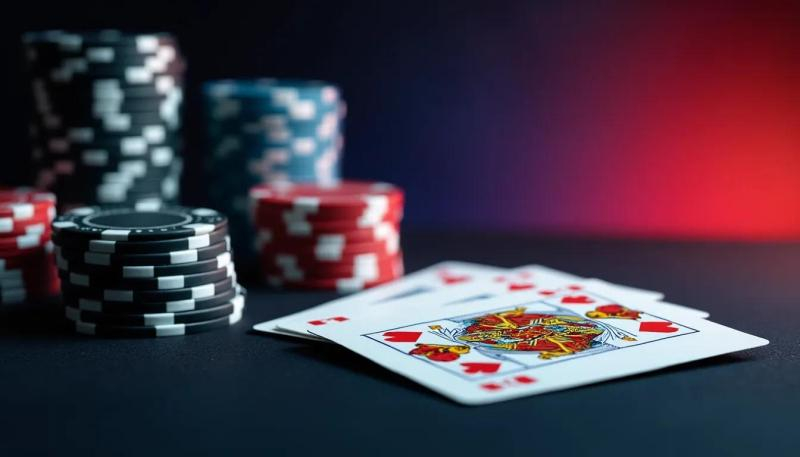In the high-stakes world of poker, where skill, strategy, and psychology intertwine to form a thrilling game of wits and nerve, the art of competition reaches its zenith. As players gather around the felt battlefield, poised for battle with their cards and chips in hand, the stage is set for a display of cunning and guile unlike any other. Welcome to the intricate dance of poker competition, where every move carries weight and every decision could mean the difference between victory and defeat. Join us as we delve into the heart of this electrifying game and explore the strategies and tactics employed by the masters of the poker world.
Mastering the Psychological Aspect of Poker Competition
In the world of poker competition, mastering the psychological aspect is often just as important as having strong technical skills. Players who can maintain a calm and focused mindset, even in the face of intense pressure, are more likely to come out on top. Here are some key tips for harnessing the power of psychology in poker tournaments:
Mindfulness and Meditation: Practice mindfulness techniques to help stay present and focused during gameplay. Meditation can also help manage stress and anxiety, allowing you to make clearer decisions at the table.
Emotional Control: Learn to regulate your emotions and avoid tilting when things don’t go your way. Keeping a level head can prevent you from making impulsive or reckless moves that could cost you the game.
Strategic Thinking: Develop a strong mental game by analyzing your opponents’ behaviors and adjusting your strategies accordingly. Understanding the psychology of your competitors can give you a significant edge at the poker table.
| Psychological Tip | Explanation |
|---|---|
| Stay Calm Under Pressure | Practice deep breathing exercises to stay calm during intense moments. |
| Visualize Success | Use visualization techniques to imagine yourself making winning plays. |
| Self-Reflection | Take time to reflect on your performance and identify areas for improvement. |
Utilizing Strategic Thinking and Decision-Making Skills
In the high-stakes world of poker competition, strategic thinking and decision-making skills are crucial for success. Players must carefully consider their hand, assess their opponents’ moves, and calculate the odds of winning before making a move. This constant evaluation and analysis require a keen sense of strategic thinking that sets the best players apart from the rest.
One key aspect of poker competition is bluffing, where players strategically deceive their opponents into thinking they have a stronger hand than they actually do. This risky tactic requires a deep understanding of the game, the ability to read opponents’ body language and expressions, and the confidence to execute the bluff convincingly. Mastering the art of bluffing is a testament to a player’s strategic thinking and decision-making skills in the heat of the moment.
Another important skill in poker competition is knowing when to fold and when to push forward. Making the right decision at the right time can mean the difference between winning big or losing it all. Players must weigh the risks and rewards, trust their instincts, and have the courage to make tough decisions under pressure. This level of strategic thinking and decision-making is what separates the amateurs from the professionals in the thrilling world of poker competition.
Developing a Strong Poker Tournament Game Plan
In order to excel in a poker tournament, it is essential to have a well-thought-out game plan. One key aspect of developing a strong strategy is to understand the dynamics of tournament poker. Unlike cash games, where you can buy back in if you bust out, tournaments have a fixed buy-in and structure that require a different approach.
Here are some tips to help you craft a winning poker tournament game plan:
- Start with a solid foundation: Begin by studying the tournament structure and blind levels. This will help you determine the optimal times to be aggressive or conservative. Understand the importance of chip stack sizes and how they relate to your bets and range of hands to play.
- Adapt to your opponents: As the tournament progresses, pay attention to your opponents’ playing styles and tendencies. Adjust your strategy accordingly by exploiting their weaknesses and avoiding their strengths. Keep track of how they react to different situations and use this information to your advantage.
- Manage your bankroll effectively: Bankroll management is crucial in tournament poker. Make sure to set aside a budget for buy-ins and stick to it. Avoid going on tilt or chasing losses by staying disciplined and focused on making the best decisions possible. Remember, it’s not always about winning every hand, but rather making profitable plays in the long run.
| Position | Chip Count |
|---|---|
| 1st | 50,000 |
| 2nd | 45,000 |
| 3rd | 40,000 |
| 4th | 35,000 |
By following these guidelines and continuously honing your skills, you can develop a strong poker tournament game plan that gives you the best chance of success. Remember, poker is a game of skill and strategy, so invest the time and effort to improve your gameplay and outsmart your opponents. Embrace the art of competition and enjoy the journey towards becoming a formidable poker tournament player.
Analyzing Opponents Behavior and Playing Styles
In the high-stakes world of poker competition, understanding your opponents’ behavior and playing styles is crucial for success at the table. By analyzing how your opponents approach the game, you can gain valuable insights that will give you a competitive edge.
One key aspect of analyzing opponents’ behavior is observing their betting patterns. Pay attention to how much they bet, when they bet, and how they react to different situations. This information can help you predict their next move and adjust your own strategy accordingly.
Another important factor to consider is your opponents’ body language and demeanor. Nonverbal cues such as facial expressions, posture, and hand movements can reveal a lot about their confidence level and the strength of their hand. Learning to read these signals can help you make better decisions and ultimately outwit your opponents at the poker table.
Overall, mastering the art of poker competition requires a combination of skill, strategy, and psychological insight. By carefully analyzing your opponents’ behavior and playing styles, you can improve your chances of coming out on top in every game. Remember, poker is as much about outsmarting your opponents as it is about playing the cards you’re dealt.
Enhancing Overall Performance through Continuous Practice
When it comes to mastering the art of poker competition, continuous practice is key. By consistently honing your skills and strategies, you can enhance your overall performance at the table. Whether you’re a seasoned player or just starting out, dedicating time to practice is essential for growth and success in the competitive world of poker.
One way to improve your poker game is to focus on specific aspects of gameplay during practice sessions. This could include working on your bluffing techniques, mastering the art of reading opponents, or refining your mathematical calculations. By identifying areas for improvement and practicing them regularly, you can strengthen your overall performance and increase your chances of success in poker competitions.
Furthermore, participating in mock poker competitions with friends or online communities can provide valuable experience and feedback. By simulating real tournament settings in a low-pressure environment, you can test your skills, adapt your strategies, and gain confidence in your abilities. Through continuous practice and participation in poker competitions, you can refine your gameplay and ultimately elevate your performance to new heights.
Q&A
Q: What is the key to success in poker competition?
A: The key to success in poker competition lies in a combination of skill, strategy, and mental fortitude.
Q: How can players improve their poker skills?
A: Players can improve their poker skills through practice, studying the game, and seeking guidance from experienced players or coaches.
Q: What makes a great poker player stand out in competition?
A: A great poker player stands out in competition by having a deep understanding of the game, making calculated decisions, and maintaining a calm and focused demeanor under pressure.
Q: How important is mental toughness in poker competition?
A: Mental toughness is crucial in poker competition, as players must be able to control their emotions, handle setbacks, and stay focused on their strategy.
Q: What role does luck play in winning poker tournaments?
A: Luck plays a role in winning poker tournaments, but ultimately skill and strategy are the determining factors in long-term success.
Q: How can players prepare for a poker competition?
A: Players can prepare for a poker competition by practicing regularly, studying their opponents, and developing a game plan for different scenarios they may encounter.
Q: What are some common mistakes to avoid in poker competition?
A: Common mistakes to avoid in poker competition include playing too aggressively, neglecting to read other players, and letting emotions dictate decision-making.
Q: How important is learning from losses in poker competition?
A: Learning from losses is essential in poker competition, as it allows players to identify weaknesses in their game and make improvements for future tournaments.
The Conclusion
The art of poker competition is a captivating blend of strategy, skill, and psychology that keeps players coming back for more. Whether you’re a beginner looking to learn the ropes or a seasoned pro seeking to hone your craft, there is always something new to discover in the world of poker. So next time you sit down at the table, remember to play smart, stay focused, and above all, enjoy the thrill of the game. Good luck, and may the cards be ever in your favor.








